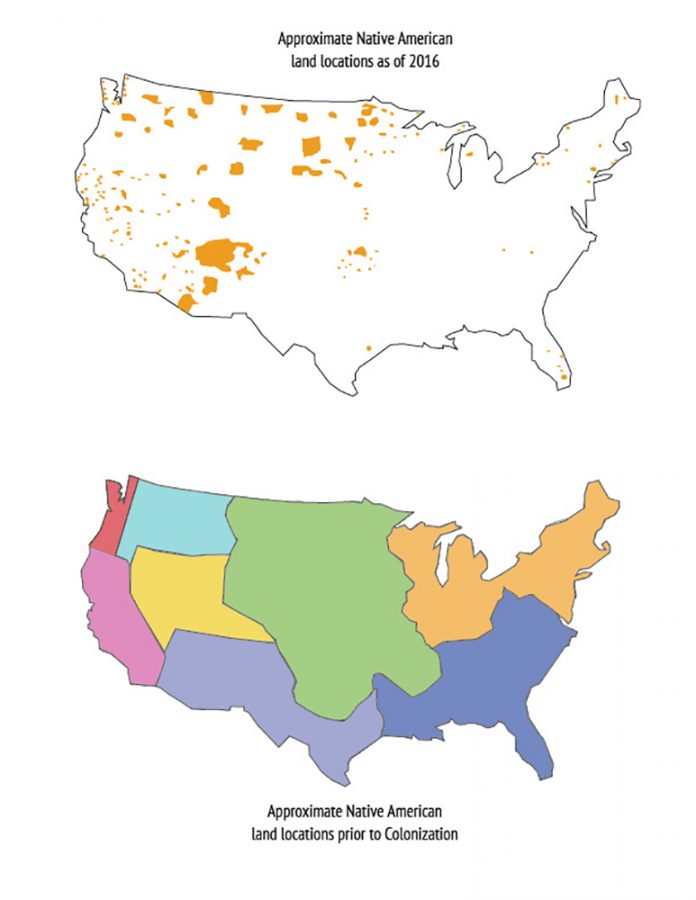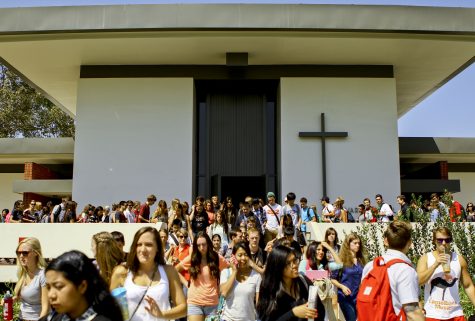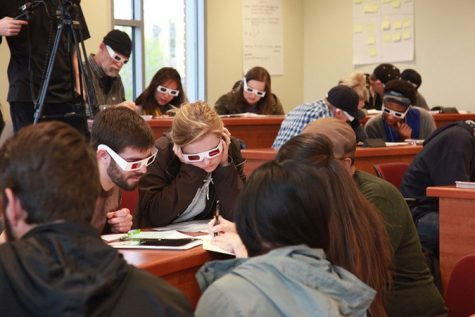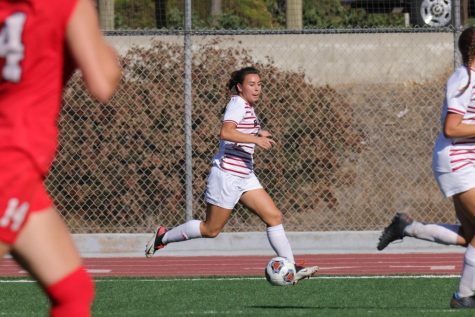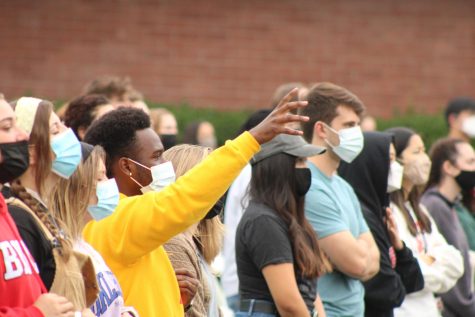Season recalls injuries
This time of year provides a time to reflect on sensitivity towards Native Americans.
November 15, 2016
Pinterest advertises their dream catchers, stores sell their moccasins and Halloween parties filled with people wearing headdresses and war paint. Ask someone who has had little exposure to Native American culture and they will say they know about Native Americans when they have only seen Pocahontas and have memorized the words to “Colors of the Wind.”
A much different story
The amount of people who know of the struggles Native Americans have faced, heard their stories and have taken action to stop the injustices remains few.
“It’s interesting about how the victors of history write history, because we have stories that are told to us, we have legends, we have oral history, and we hear both sides,” said Chloe Dean, a Native American sophomore psychology major. “It’s interesting seeing how different American history portrays that time, because if [the pilgrims] had not been helped by Squanto and the Wampanoag tribe, they would never have survived.”
Native Americans’ problems prove far from over, which explains one of the reasons Biola chose to celebrate National American Indian Heritage Month last week by hosting a viewing of the documentary “The Canary Effect” and panel discussion on Monday, Nov. 7. The film displayed Native American history and the trials they endured. The cafeteria had a Native American dinner on Wednesday, Nov. 9, and an information booth about the Dakota Access Pipeline sat outside the cafeteria on Thursday, Nov. 10.
“I think Biolans care about social justice issues and they care about culture, and I would like to think that they do care about the Native American culture,” said Katy Gutierrez, senior sociology major and Student Programming and Activities multicultural coordinator. “I just think it’s hard to come into it in conversation when it’s not your culture.”
Some of the issues the panelists talked about on Monday included the Dakota Access Pipeline, Columbus Day and Thanksgiving.
The need for sensitivity
When holidays such as Thanksgiving and others that deal with the American history approach, it seems natural to call into question the sensitivity of celebrating them in light of Native American struggles.
“I think that America should be more aware of what happened after [the pilgrims landed] and what went down,” said Kyle Quiroz, an alumnus and one of the panelists who spoke after the documentary. “To be honest, a lot of my native friends celebrate Thanksgiving, and they don’t have a negative outlook on it.”
Celebration and respect
Many Native Americans use Thanksgiving as an opportunity to celebrate and respect their ancestors who helped the pilgrims.
“Thanksgiving for me, at least for my family, is a sign of hope,” Dean said. “That from everything that we have experienced, we are going to survive and hopefully the sacrifices our ancestors made for us wasn’t in vain.”
Although many Native Americans celebrate Thanksgiving without any qualms, Americans should still respond to the holiday with care, making sure to not allow any microaggressions — such as inappropriate decorations or portrayals of Native Americans — to appropriate the celebration.
“If we could just really just break down the stereotypes of what everybody thinks a Native American is… and really educate more people on our beliefs and our traditions, and kind of stem away from the bad things that people think of Native Americans,” said Sarah-Renee Smith, a junior education major and member of the Navajo and Tache tribes.
Columbus Day presents a larger problem for Native Americans than Thanksgiving does because of the crimes Columbus committed towards them, according to Norma Blackwater, alumna, panelist and member of the Navajo tribe.
“My opinion of Thanksgiving? It’s a day off, yay. No, but Columbus Day — we have a different issue,” Blackwater said. “I never was happy when we had to do the Columbus thing. Right now I’m part of the movement to make it Indigenous People’s Day.”
Native Americans and those who sympathize with them hope to replace Columbus Day with Indigenous People’s Day, which would celebrate the importance of Native American culture. They feel that celebrating Columbus proves inappropriate due to the atrocities he committed towards them and the fact that he did not actually discover the Americas first.
Getting kicked off of their land, deprived of their culture and subjected to physical abuse describe just a few of the injustices Native Americans have endured in the past. To this day, they continue to experience hurt and racism through issues such as the Dakota Access Pipeline issue, the controversy regarding the pipeline being built through Native American burial grounds and some of their water sources. It represents another angering situation for the Native Americans, causing many of them to feel hopeless and unheard.
“Honestly, it’s like, we’ve already had so much land taken away from us that it’s like, ‘Oh great, here’s another thing,’ Smith said. “And so, it’s kind of, like, this never-ending [cycle] of just take, take.”
In order to respect Native Americans, people should begin to expand their knowledge of Native American culture and history and become involved in Native American’s rights campaigns, according to Blackwater.
“Only Jesus can heal [cultural insensitivity],” Blackwater said. “Just be yourself. Get out there and learn it, do it. You have all the tools to do it.”
The SPA multicultural coordinators hope to inspire better awareness among the student body towards Native American culture.
“I think what I’m trying to do through my position is encourage students. I still think the people who are here are going to start the conversation, or are going to be encouraged to learn more,” Gutierrez said about those who participated in the documentary showing. “It’s okay to feel uncomfortable when you’re talking about things, but take the stance of being willing to learn and educate yourself.”


